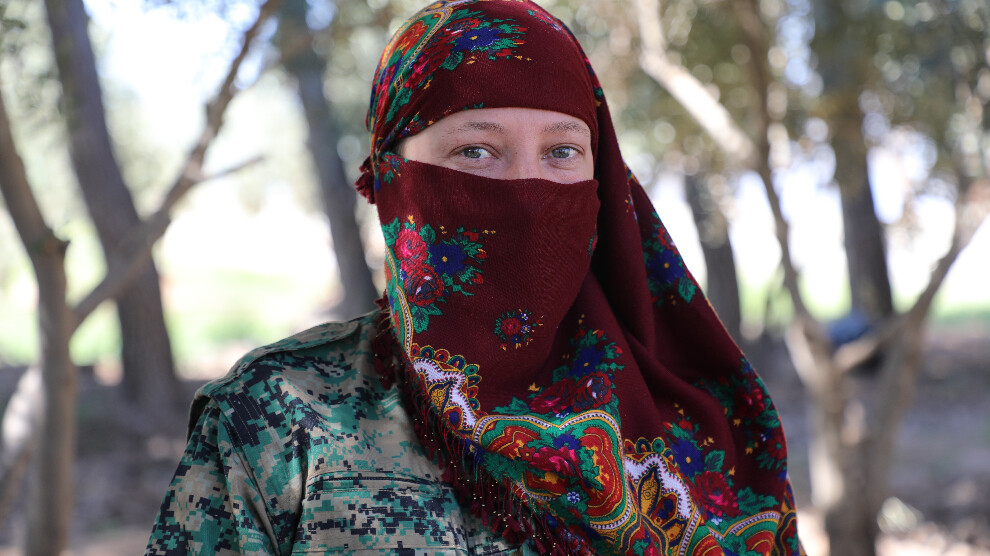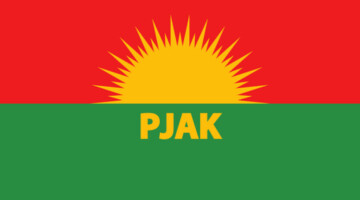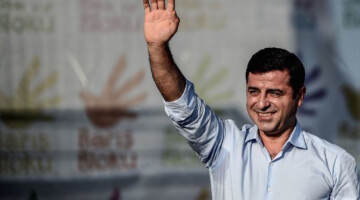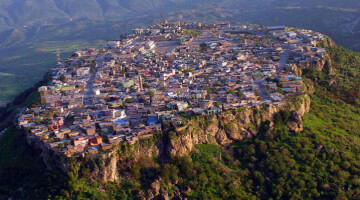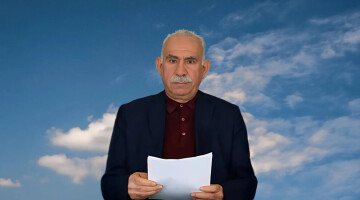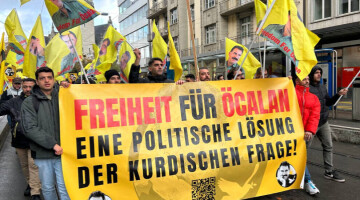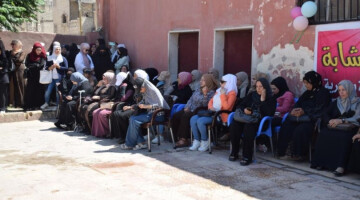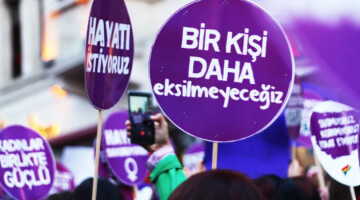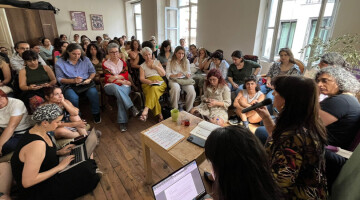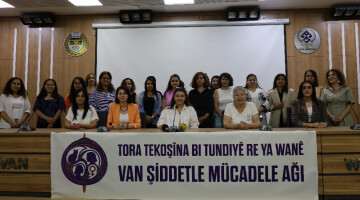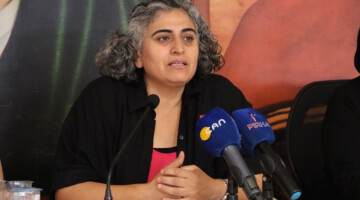YPJ Internationalist Berçem Slava talked to ANF about her experience in Rojava. “My name is Berçem Slava, I am from the eastern part of Europe. As young people living under capitalism, under the nation-state of Europe, we realized how this system is oppressive.”
Slava remarks that it was during the Kobanê war that “we heard for the first time about the resistance which took place, and about the revolution, about the new system that was starting to be built here, the way society is organized here. For us, this was something that was really interesting because we were also realizing how much the state is oppressive to us, so it was something we started to research about. And later, we found out that women also had an important place here. We see this as a place in the world where people started to organize without a state and where people take their society, their life, into their hands and they want to organize themselves. So we, we felt somehow a duty to come, to know.”
Slava adds: “We were not coming as individuals, we were coming as a group of people already. People who come together want to support the revolution and learn about it. So coming here was like some kind of dream coming true. Back in our countries, we are told that the system we are living in is the only solution. There is no possible change. Coming here was the proof that organising in a different way is possible. That a different life is possible, an egalitarian life is possible, the role of woman can be really much more progressive than we are taught anywhere else. Women can play a leading role in society, in the public environment. For example, I think one of the most amazing and important points is how women are actually engaged in all different aspects of society: the military, the social and the political ones. The hevserokatî system, the co-chair system, guarantees that women have a place in it.”
Slava talks about the progress made in Rojava. “Look at history, self-defense is such an essential point. For society and especially women. After the revolution, there was a big step towards women’s liberation in the way that women could participate through the new system. They could start to educate themselves on what it means to defend their country. They could learn to read and have more access to education, and have more access to ideological education also. And nevertheless, they are able to, in a war situation, to organize themselves, to develop and become members of the YPJ.”
Slava has a message for those living outside Rojava: “First I would like to call everybody to get more in touch with the revolution, to do research, to understand the ideology and the philosophy. Abdullah Ocalan is the leader of the Kurdish people and is also a philosopher. Abdullah Ocalan, through his writings, was able to offer alternatives which can be really useful all over the world.”

